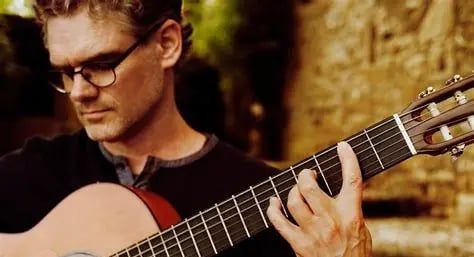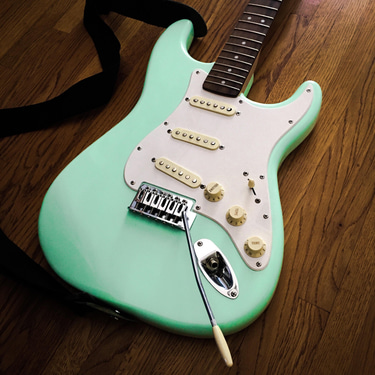Jesse Cook ties ancient sounds to technology
By Jim Dail
8/12/20253 min read


Sometimes musicians create good things when they are tinkering around. In the case of Jesse Cook, a Juno Award winner and 11-time nominee, and his new record, “One World,” it was his son’s experimentation that got the ball rolling.
“I was kind of looking for ideas and at one point I was thinking of going to Brazil or India and looking for that inspiration” said James in a recent telephone interview. “I wound up using a lot more technology with this one.”
Cook will perform Saturday at Thornton Winery as part of the 2015 Champagne Jazz Concert Series.
Cook is an aficionado of all styles of music and instruments. Fresh off his last record, “The Rhumba Foundation” that saw him travel to Colombia for inspiration, there was certainly a multi-culture feel to “one World,” but it started in a bit of a different way.
“My son was messing around with my computer,” he said. “He was about seven and at that age they are fearless because they don’t realize what they are doing and no afraid of busting things up. He kept wanting to get on my main computer in the studio and it is connected to everything.”
He eventually relented, left the room because he couldn’t bear to watch, and returned later.
“He had all kinds of pages open and was dragging loops and doing all these things,” he said. “I asked him how he did that and I tried it and started to have fun with the loops and before I knew it, I was trying my own songs there with loops and all.”
That said, as with much of his music, there is a range of global sounds to it.
“I feel excited about different parts of the world with all these music cultures modern, ancient, First World and Third World,” he said. “I like to imagine it is Constantinople. That was the cross roads of culture. It was the New York of the world. I wonder what music would have sounded there thousands of years ago. I figured let’s make a record that covers that.”
Cook is a master at flamenco guitar with a style that encompasses jazz, pop, rumba, gypsy and classical music. Thus, it makes sense that his new record would have a global feel to it.
“When you re kid you don’t think about it, but when I starting making a record, part of it is traveling somewhere,” he said. “Toronto, where I live, is supposed to be the greatest variety of cultures. The largest variety of population is British, then Asian, Caribbean, Greek. I mean, it’s the largest Asian city outside of Asia, the third-largest Caribbean city.”
A flamenco player at an early age, he was always dabbling with various music and instruments, including forming a drum ensemble when he got out of school.
“It was about being with friends,” he said. “If they were surfing instead, I would have been doing that.”
Fortunately for fans, his friends were into music and his experiences have only added different depth to his music.
“I sort of feel these instruments, like the Armenian duduk,” he said. “It’s a flute, one of the old instruments and a grandfather of the sax, though I don’t hear that in it. I first heard it on a Peter Gabriel record and it sounded like a ghost to me. It’s just a cool sound to me. So, for this record I combined the ancient sounds with technology.”
And that helps him not get too repetitive.
“When I made Tempest first record [in 1995] I didn’t know what was going to happen,” he said. “I made it independently and went to some local place that makes CDs and for pennies more you can get a thousand. I made them and suddenly we got signed. Then the record company wanted a quick new record. It was by the third album that I worried they started to sound the same.”
While the label might have been fine with it, Cook wanted to improvise.
“Miles Davis reinvented himself constantly,” he said. The Beatles did that too, from ‘I Want to Hold Your Hand and then ‘Day in the Life’ and then “The White Album.’ They pushed the boundaries. That’s what I want to do. I try to start each album in a different place. I go on a trip, put myself there within the culture. The music comes together. It works because it takes you out of your routine.”
So, he thinks he may have been even more experimental this time around as a result.
“I wanted to tie my guitar to the ancient and the modern, and I think on this record I gave it a wider score and didn’t limit myself.”
